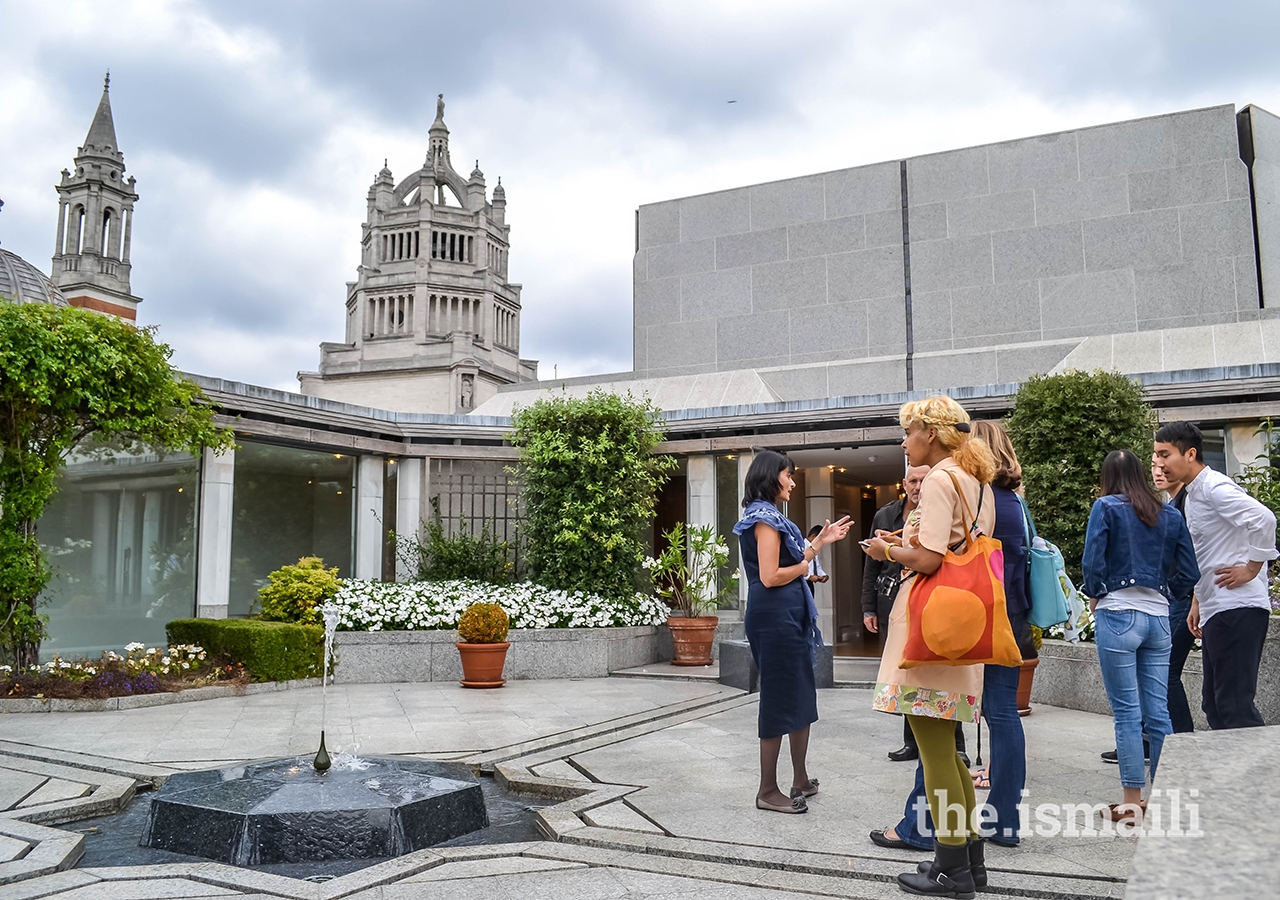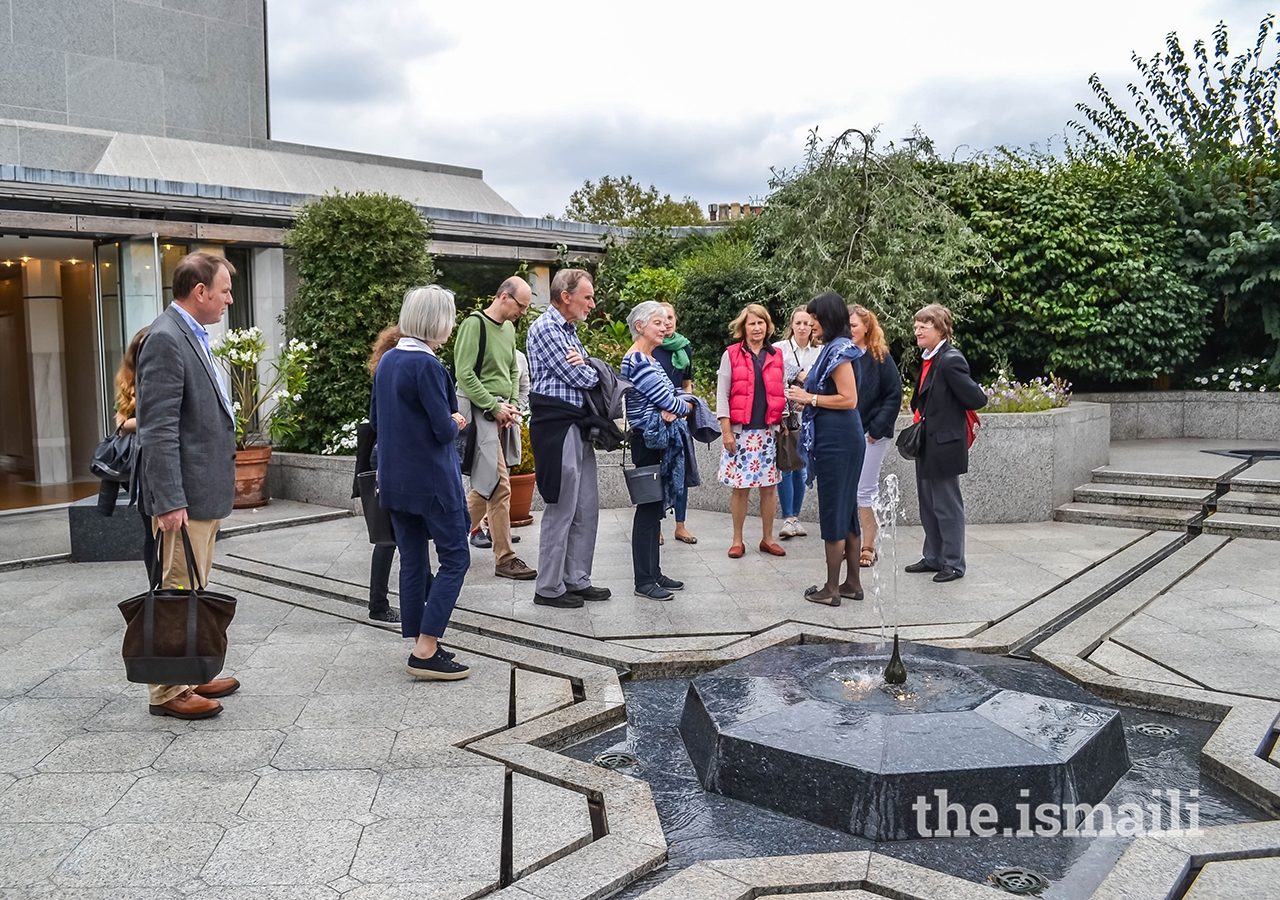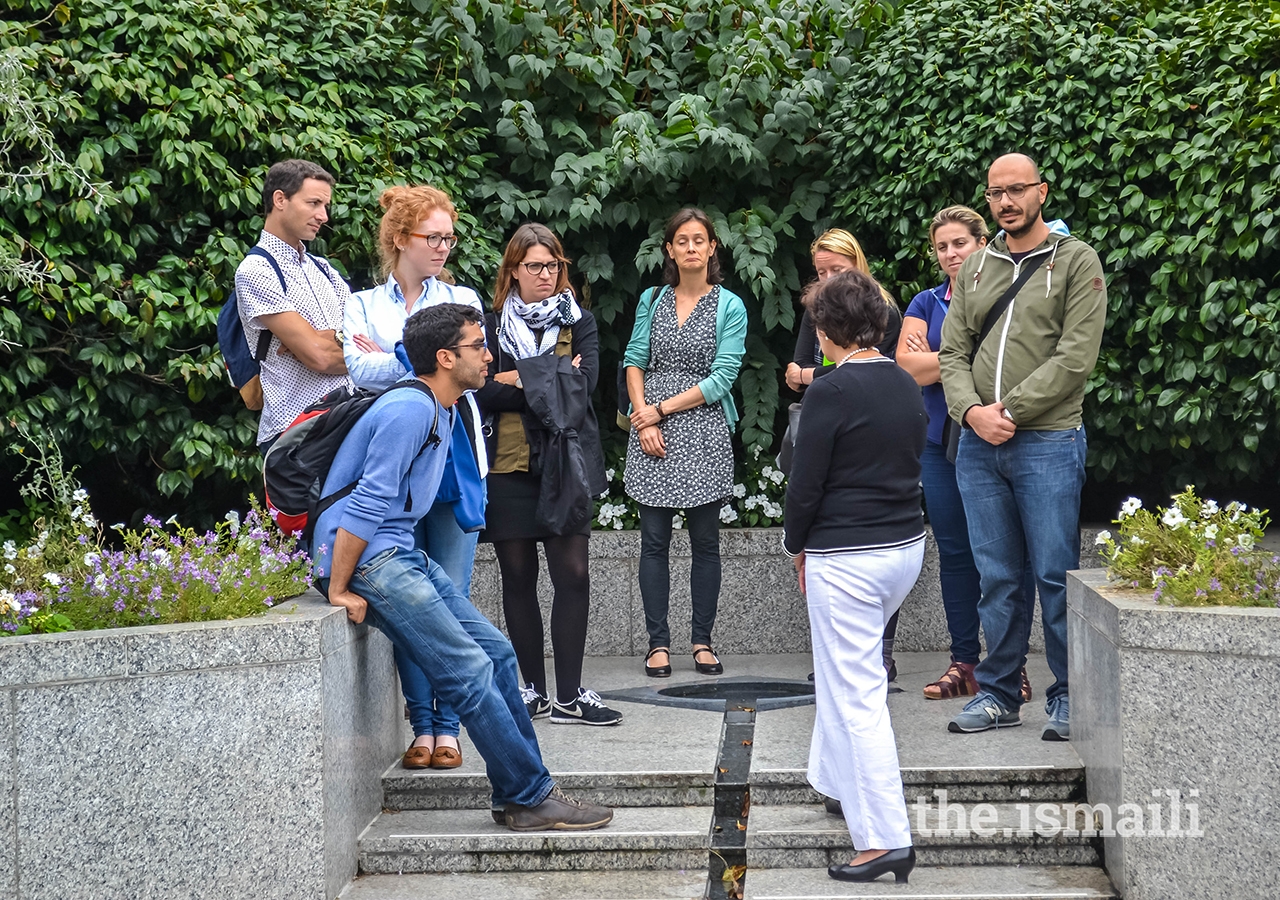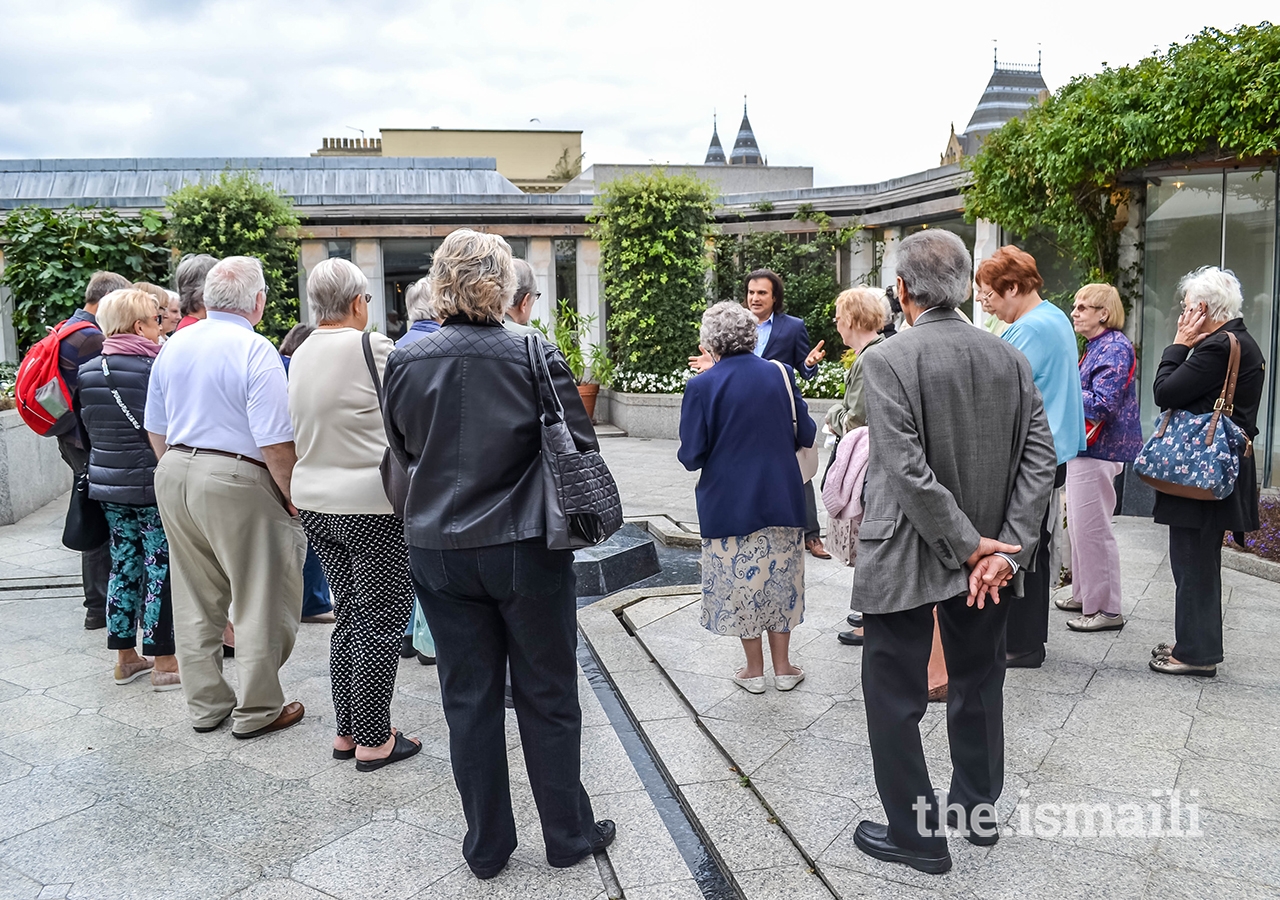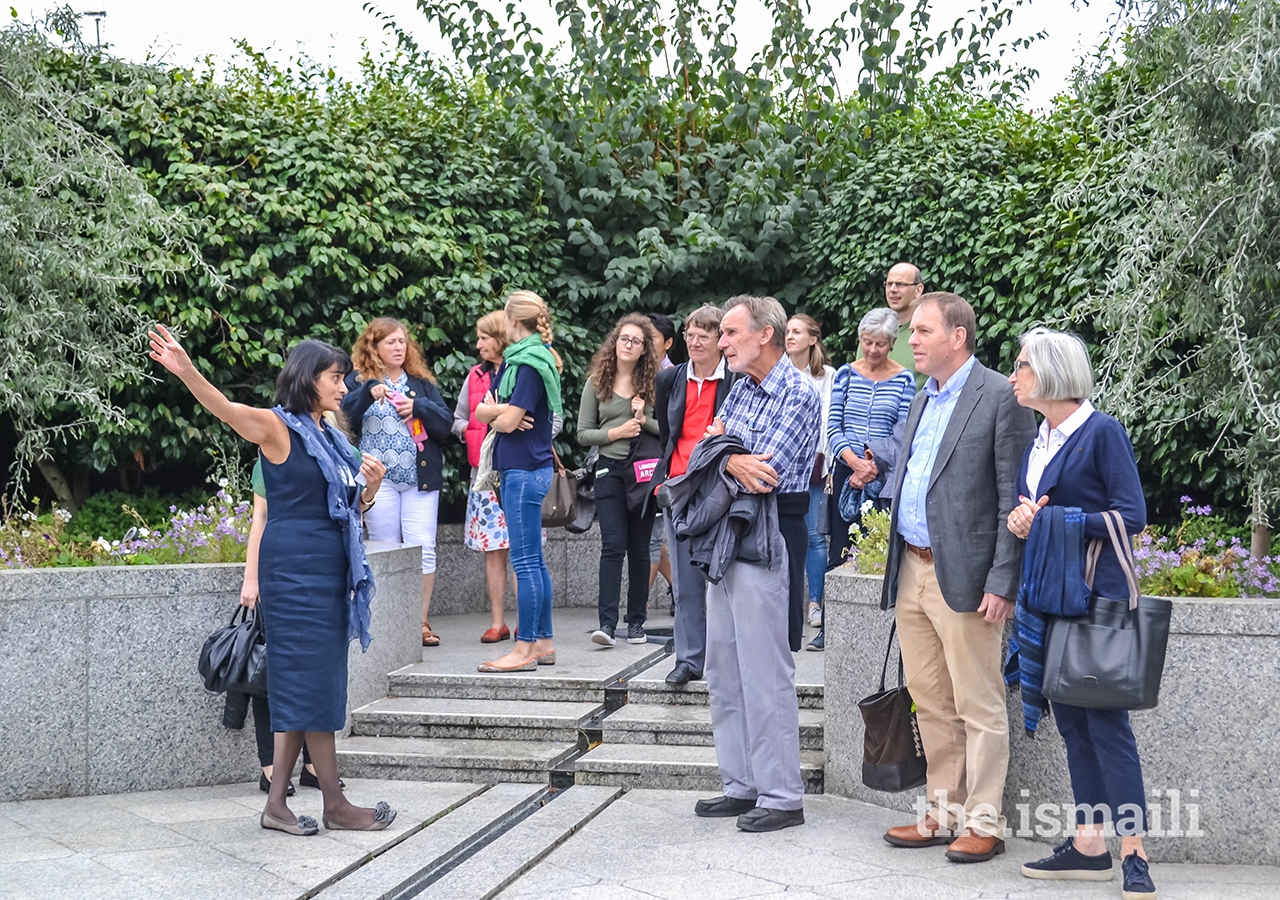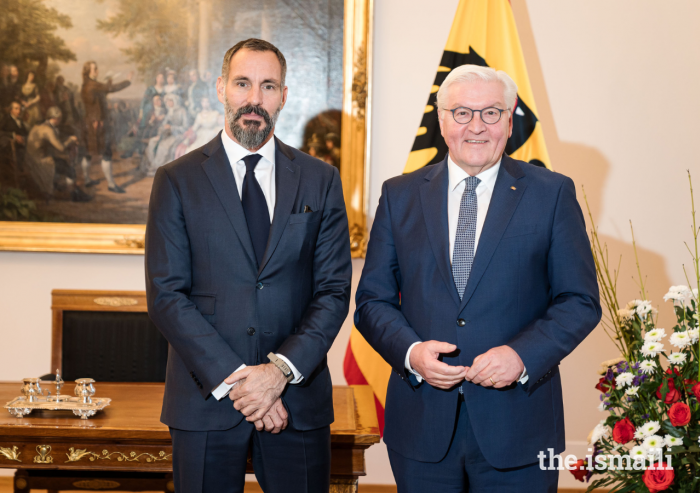Islamic gardens can be found across the globe, from tomb gardens to pleasure gardens, medicinal and botanical gardens. Traditionally, an Islamic garden incorporates symmetry, water and architectural elements: it is an earthly reminder that paradise is a place of rest and reflection. Simultaneously, there are not many more quintessentially English notions than a traditional garden.
The annual Open Garden Squares weekend recently took place in London, where the roof garden at the Ismaili Centre was one of over 200 gardens that welcomed visitors, illustrating an ideal convergence of traditional influences.
Open Garden Squares weekend is an annual event during which green spaces, many usually closed to the public, open their gates for public enjoyment and discovery. Visitors are given an opportunity to explore London's urban gardens, including rooftop gardens, private squares, as well as gardens on barges, indoor flower installations, pop-up orchards and diminutive hidden spaces tucked behind busy streets.
The Ismaili Centre Roof Garden is often described as ‘one of London's best-kept secrets.’ The serene setting of this beautiful garden reflects motifs from Islamic architectural heritage, drawing on the traditions of Muslim civilisations that have inspired outstanding buildings for many centuries throughout the world. The chahar-bagh (four-part garden), delineated by a central fountain, draws inspiration from the Qur'anic imagery of the Garden of Paradise. Sheltered, yet open, it combines granite and greenery with geometry, symbolism and the sound and flow of water. During the weekend, many had the opportunity to experience the roof garden and prayer hall, remarking on the peace, tranquility, and beauty of their surroundings, which offers a sanctuary of calm amidst the bustle of the city below.
Ismaili Centres around the world provide not only spaces of reflection and contemplation, they also act as hubs of social engagement and unity in the communities in which we live — opening channels of communication and opportunities for relationship-building.
At the foundation ceremony of the Ismaili Centre in Lisbon in 1996, Mawlana Hazar Imam said that the Ismaili Centres were to be seen as “ambassadorial buildings, which today reflect and illustrate much of what the Shi‘a Ismaili community represents.” As ambassadorial buildings representing the values of our faith, the Ismaili Centres enable us to dialogue and extend the hand of friendship to those amongst whom we live, whilst continuing to provide us with spaces for intellectual engagement, social and cultural gatherings, and spiritual contemplation. Equally, the Centres have a tremendous impact on our identity, dispelling misperceptions of our faith and transforming the sense of who we are. In the process, the Ismaili Centres help us to articulate our place in the world, both as Ismailis and Muslims.

